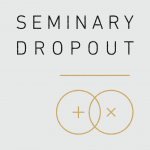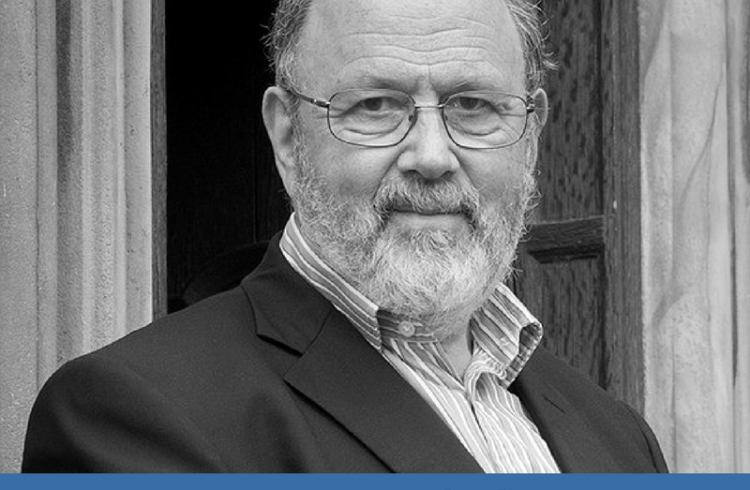
This Week on Seminary Dropout…
N. T. Wright is the Chair of New Testament and Early Christianity at the University of St. Andrews in Scotland. He is the award-winning author of many books, including After You Believe, Surprised by Hope, Simply Christian, The Challenge of Jesus, and The Meaning of Jesus (coauthored with Marcus Borg), as well as the series Christian Origins and the Question of God.

Finally: an introduction that captures the excitement of the early Christians, helping today’s readers to think like a first-century believer while reading the text responsibly for today.
The New Testament in Its World is your passageway from the twenty-first century to the era of Jesus and the first Christians. A highly-readable, one-volume introduction placing the entire New Testament and early Christianity in its original context, it is the only such work by distinguished scholar and author N. T. (Tom) Wright.
An ideal guide for students, The New Testament in Its World addresses the many difficult questions faced by those studying early Christianity. Both large and small, these questions include:
- What is the purpose of the New Testament?
- What was the first-century understanding of the kingdom?
- What is the real meaning of the resurrection in its original context?
- What really were the Gospels?
- Who was Paul and why are his letters so controversial?
- As twenty-first-century people, how do we recover the excitement of what it was like to live as Christians in the first or second centuries?
In short, The New Testament in Its World brings together decades of ground-breaking research, writing, and teaching into one volume that will open readers’ eyes to the larger world of the New Testament. It presents the New Testament books as historical, literary, and social phenomena located in the world of Second Temple Judaism, amidst Greco-Roman politics and culture, and within early Christianity.
Written for both classroom and personal use, the benefits of The New Testament in Its World include:
- A distillation of the life work of N. T. Wright on the New Testament with input from Michael Bird
- Historical context that situates Jesus and the early church within the history, culture, and religion of Second Temple Judaism and the Greco-Roman world
- Major sections on the historical Jesus, the resurrection of Jesus, and Paul’s chronology and theology
- Surveys of each New Testament book that discuss their significance, critical topics like authorship and date, and that provide commentary on contents along with implications for the Christian life
- Up-to-date discussions of textual criticism and the canonization of the New Testament
- A concluding chapter dedicated to living the story of the New Testament
- Available Video and Workbook companion resources to enhance learning and experience the world of the New Testament
- Illustrated with visually rich pictures, maps, charts, diagrams, and artwork; plentiful sidebars provide additional explanations and insights
-From the Publisher


Missio Alliance Comment Policy
The Missio Alliance Writing Collectives exist as a ministry of writing to resource theological practitioners for mission. From our Leading Voices to our regular Writing Team and those invited to publish with us as Community Voices, we are creating a space for thoughtful engagement of critical issues and questions facing the North American Church in God’s mission. This sort of thoughtful engagement is something that we seek to engender not only in our publishing, but in conversations that unfold as a result in the comment section of our articles.
Unfortunately, because of the relational distance introduced by online communication, “thoughtful engagement” and “comment sections” seldom go hand in hand. At the same time, censorship of comments by those who disagree with points made by authors, whose anger or limited perspective taints their words, or who simply feel the need to express their own opinion on a topic without any meaningful engagement with the article or comment in question can mask an important window into the true state of Christian discourse. As such, Missio Alliance sets forth the following suggestions for those who wish to engage in conversation around our writing:
1. Seek to understand the author’s intent.
If you disagree with something the an author said, consider framing your response as, “I hear you as saying _________. Am I understanding you correctly? If so, here’s why I disagree. _____________.
2. Seek to make your own voice heard.
We deeply desire and value the voice and perspective of our readers. However you may react to an article we publish or a fellow commenter, we encourage you to set forth that reaction is the most constructive way possible. Use your voice and perspective to move conversation forward rather than shut it down.
3. Share your story.
One of our favorite tenants is that “an enemy is someone whose story we haven’t heard.” Very often disagreements and rants are the result of people talking past rather than to one another. Everyone’s perspective is intimately bound up with their own stories – their contexts and experiences. We encourage you to couch your comments in whatever aspect of your own story might help others understand where you are coming from.
In view of those suggestions for shaping conversation on our site and in an effort to curate a hospitable space of open conversation, Missio Alliance may delete comments and/or ban users who show no regard for constructive engagement, especially those whose comments are easily construed as trolling, threatening, or abusive.